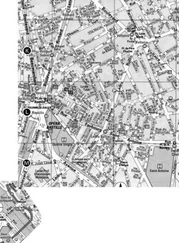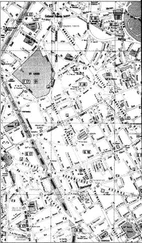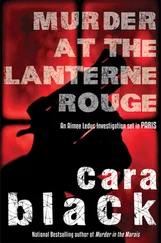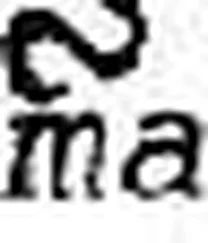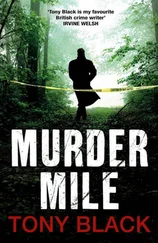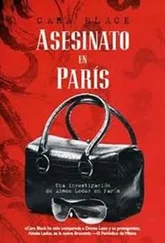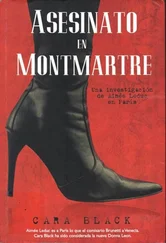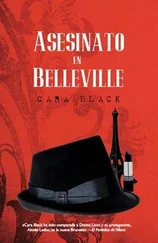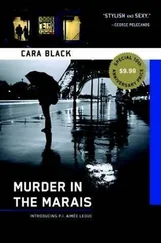Her breath caught in her throat.
“Just that apartment was affected,” he said.
“Only that apartment?” She sat up more slowly, rewrapped her sandwich, and stuck it in her jacket pocket.
Her chest tightened again.
But something bothered her more. She’d been hit from behind. A big welt on her head throbbed.
“Go slow,” Herve said. “You can claim workman’s comp and disability from your union. I’ll give you some forms. Patients always forget down the road.”
She didn’t want to disregard his advice; his warm blue eyes and wide smile were sincere. But she wanted to run inside the building and check to see if there was anything left.
“ Merci . But I need my bag,” she said. “And I’ve got to get home.”
Hervé wrapped a blood pressure cuff around her arm, inserted a cold stethoscope against it, and pumped. “Can you tell me who you are, what day it is, where we are, and what happened?”
“Aimée Leduc, it’s Monday night in an ambulance in the Sentier, and I was trying to fix a plumbing problem inside the apartment.”
“A and O looks good,” he said. “Awake and orientée but the captain wanted to talk to you when you came round. See how you feel after that.”
She shrugged.
“Meanwhile, let’s get your address.”
Uh oh. If she admitted she was trying to gain entry to the apartment under false pretenses she’d be in trouble. Big trouble.
From outside, she heard raised voices. One was familiar. She recognized Christian Figeac.
“Of course, but I need to speak with the owner, he’s my friend.”
“ Bien sûr , but let’s get the paperwork out of the way,” Hervé said with gentle insistence.
By the time Aimée made it out of the ambulance she’d accepted an ice pack for her head, given an address, signed a release form, and agreed to meet Hervé later for coffee. Too bad she had no intention of honoring that commitment.
Only when she reached the courtyard did she appreciate the irony. She’d have given anything to have found documents regarding her mother in the apartment, but doing so would have cost her life.
Uniformed pompiers rushed past her with more hoses, dampening the smoldering walls. A group with hatchets followed. Christian Figeac stood talking with a man who took notes and wore jeans. Either a reporter or an insurance adjuster.
White-faced, with soot smudges on his cheeks and hands, Christian seemed shell-shocked. He wore the same silver synthetic leather jacket, his hair more stringy than before. She couldn’t tell if he recognized her. The man handed him a card.
“Arson?” Aimée asked, joining them.
“Mademoiselle, after investigation the arson squad will inform us,” the man said, snapping his notebook shut. “It’s not what we’d call a typical Sentier fire. Contact me tomorrow, Monsieur Figeac.”
And he was gone.
“You see,” Christian said, turning to her, his gaze hollow. “A curse.”
“Curse?”
“Like the ghosts,” he said.
Stark halogen searchlights set by the fire crew illumined the dripping building foyer. Pompiers ran back and forth, shouting directions and releasing hose pressure.
Ghosts didn’t set fires.
She took him by the elbow to a corner of the wet, dark courtyard. Black puddles reflected the crescent fingernail of a moon.
“Tell me one thing and the answer goes no further,” Aimée whispered, pulling him closer. “Did you set that fire?”
Christian Figeac’s expression didn’t change. “You think I need the money?”
She figured that was a rhetorical question and stayed quiet.
“Money … there’s a lot,” he said, as if talking to himself, twisting his hands together. His dry skin made a raspy sound. “Accounts I never knew about.”
It wouldn’t make sense to burn the place down for the insurance if he had money.
“What did he mean by the typical Sentier fire?”
“In the rag trade,” Christian said, “say the merchant can’t sell last season’s overstock, he has a fire and collects insurance, probably makes a profit, too.”
Of course, this was different. But who could have done it?
“Would Idrissa set the fire?”
“Idrissa? She’s afraid of the spirits, I told you.” He shook her off. Anger sparked in his large eyes.
“I met her,” Aimée said. “She admitted she had worked for your father. But she was hiding something.”
Christian Figeac, clad in his thin jacket, the sleeves damp, shivered in the scant moonlight. He must have come home from jail only to find his father’s apartment burning.
She felt sorry for him. After her mother left, Aimée’s father had done his best to make up for it. Her grandparents had, too. But had Romain Figeac done the same for Christian?
“I’ve got an extra couch,” she said. “You’re welcome to it.”
He blinked, shook his head as if coming to. “What kind of an outfit … a plumber?”
“I tried to break into your place and find that panel concealing the tapes,” she said. “Are there any more?”
“In the bank maybe,” he said.
“First thing tomorrow you need to get them. Listen, this is about your father. We need to talk.”
He followed her out of the courtyard.
They skirted the ambulance, passed the parked fire trucks. On rue Réaumur, she raised her arm to hail a taxi.
“No, we’ll take my car,” he said, pointing to an olive Jaguar XKE, dented, with scratched paint. A battered classic.
Christian Figeac sank into the leather ribbed seat, switched on the engine.
“What do we need to talk about?”
He seemed calmer. She hoped he could handle what she had to say. Late-night strollers crossed in front of them, pale and caught, like frightened deer, in the Jaguar’s headlights.
“Where to?” Christian asked.
“Ile St. Louis, Quai d’Anjou,” she said. “My apartment.”
He gunned the engine and shot toward Boulevard de Sébastopol.
She didn’t know how else to say it. “I’m sorry, but your father was shot with a large-caliber gun, not the one you said he’d used.”
“How do you know?” he asked, surprised.
“From the residue on the wall. It’s not consistent with …” She hesitated. “A .25 has a nice recoil but it’s not a blaster. I took a sample from the wall to the lab yesterday.” Good thing she’d followed her instinct since everything had now gone up in smoke. And it struck her. “You know, that’s what the murderer wanted … all the evidence gone.”
He slowed down. “ Murderer … why?” he asked.
“You tell me,” she said. “Did your father have enemies, someone who didn’t …?”
Her phrase was lost in a blare of honking klaxons. Christian floored the pedal. He cornered rue de Palestro. The Jaguar responded, roaring bulletlike down the narrow medieval street.
“But he left a suicide note,” Christian said. “How could he have been murdered?”
“Think back to when you found him. Tell me what you saw.”
Christian’s shoulders heaved. “It was dark, he was slumped over on the desk … like when he’d been drinking.”
“I’m sorry,” she said. “But really he was killed.”
“Papa’s writing played the most important role in his life,” he said. “Everything else ranked below it.”
“You’re proving it yourself,” she said. “He wouldn’t have committed suicide.”
They sped through the empty Sentier streets. Dark buildings encrusted with grime illumined by globular street lamps peaked above them. Alleys and passages jutted like capillaries from a veinous hub, calcified by old coaching inns.
“Christian—if I may call you that—with a suicide, the gun stays there. The .25 wouldn’t …” She paused, trying to say it tactfully.
Читать дальше


